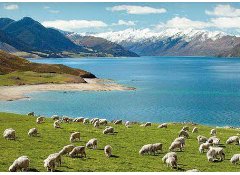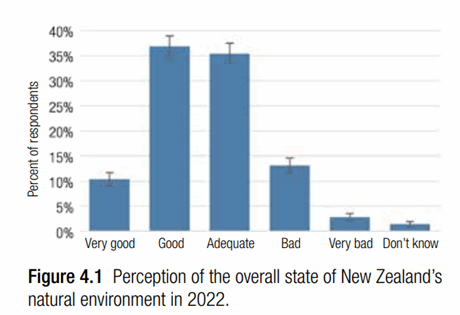News
Kiwis perceive improvement in the environment
23 Dec 22

Climate change is now seen as the most important environmental issue facing New Zealand, surpassing freshwater issues for the first time since surveys into environmental perceptions started in 2000.
The Environmental Perceptions Survey, by Manaaki Whenua – Landcare Research and Lincoln University researchers, has been done every two to three years since 2000, and is the longest-running survey of its kind worldwide. It looks at what people think are the main pressures on New Zealand’s air, land and water, and provides a “rich” data source to supplement biophysical data about the environment.
Survey fieldwork for this project has been conducted by Horizon Research since 2010.
The business new service Carbon News reports: Climate change was identified as the most important issue facing the world by respondents in every survey since 2010, with freshwater considered the most important issue facing New Zealand from 2010 to 2019.
However, climate change is now the most important environmental issue facing both New Zealand and the world in 2022, according to 20.5% and 41.9% of respondents respectively.
Disconnect between “clean green” image and reality
Carbon News says the survey shows various levels of disconnect between people’s perceptions and the actual state of the environment. Respondents thought the overall state of New Zealand’s environment had improved in 2022 and in the previous two surveys, with a significant jump in the proportion who thought the overall state of the environment was “very good” in 2019.

However this is at odds with New Zealand’s environmental performance index (EPI) measuring sustainability, which actually declined in the past ten years from 8th place globally to 26th, while other countries such as the UK, Australia, and China all improved. New Zealand was also the only country of interest not to improve its EPI “raw score” since 2012, meaning not only have other countries outstripped its ranking, but it hasn’t made any improvements compared to its own past performance.
Perceptions at odds with environmental decline
Perceptions of marine environments also remained static or improved - in contrast to biophysical trends showing poor conditions and increasing pressures from land-based activities and climate change.
Although there was uncertainty about the condition of native bush and forests, survey respondents generally thought it was in good condition. However, native bush and forests are still being converted to primarily exotic grasslands and forests in most regions.
The researchers highlighted Southland as an example where perceptions and the data differ: The region lost 3,944 ha of indigenous land cover between 2012 and 2018. However respondents from Southland thought both the condition and quality of management of indigenous land cover in their region was above average over the same period, at “adequate to good”.
Changing opinions of farming
Respondents in 2013 and 2016 thought farming and agriculture was the second most important issue facing New Zealand, but the proportion of respondents identifying this issue dropped to 5% in 2019 and 5.7% in 2022.
Farming was identified as the largest pressure on rivers, lakes, wetlands, and terrestrial plants and animals until 2019, when the proportion of respondents choosing this pressure dropped. Since 2016, respondents have identified sewage and stormwater as a more important pressure than farming on these areas.
Respondents have mixed perceptions of how well farms in their regions are doing their part for the environment. At least half of respondents across all regions think the overall environmental performance of farms in their regions is at least adequate, and at least half of respondents in Taranaki, Nelson, and West Coast think that the environmental performance of farms in their regions was “good” or “very good”.
Respondents were less optimistic about farms doing their bit for water quality, climate change, and biodiversity. On average, fewer than 33% of respondents thought farms in their regions were “good” to “very good” at doing their part for these environmental areas. Respondents were also very uncertain how well farms in their regions are doing for water quality, climate change, and biodiversity.
Recycling household waste was the most popular pro-environmental activity in 2022, but participation rates for environmental activities had dropped significantly below their 2010 rates.
14% fewer respondents were recycling in 2022 than in 2010.
In previous years, at least 50% of respondents grew their own vegetables, reduced electricity use, composted household waste, bought environmentally friendly products, reduced freshwater use, visited a national park or commuted using public transport.
However, by 2022 fewer than half of respondents bought environmentally friendly products, reduced freshwater use, visited a national park, or commuted using public transport - with the largest drop in participation happening between 2019 and 2022.
Open the full report.
HorizonPoll Online Survey system
and website developed by BEWEB
Copyright © 2010. HorizonPoll incorporating ShapeNZ - Listening to New Zealand


